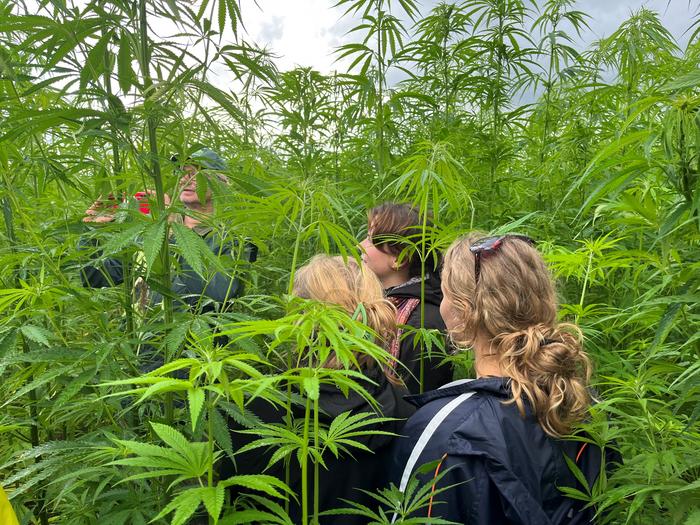When the organic process was the only thing available, the food-rich were rich and the poor were poor and the only difference was being born into a natural breadbasket. Cycles of famine were common.
Science and technology gradually changed all that. First the heavy plow was introduced, then synthetic fertilizer, then synthetic pesticides. Each improvement made agriculture safer and more efficient, and that made food more affordable. Along the way, hybrids were created but in the 20th century science was able to speed genetic engineering up quite a lot. By 1980, the Malthusian beliefs in Population Bombs, Soylent Green, and need for global sterilization promoted by Paul Ehrlich and John Holdren were shown to be paranoid nonsense.
Once food became affordable for all, every Sneetch now had a Star, so it needed new virtue signaling. The organic movement, and its cousin, the anti-vaccine movement, were ready to sell those new stars to Sneetches. They only became true movements 25 years ago, but had their modern origins in the 1940s, when anti-everything activist J. I. Rodale started publishing magazines for rich white people who distrusted science.

We can't fault Rodale's gift for marketing. He knew what his target audience wanted; models happy being up to their knees in garbage. But Rachel Carson, author of "Silent Spring", thought him a weird creep and denied it flatly when he tried to claim she was part of his movement because she didn't want so much DDT used. Carson was not right about much, but she was right about Rodale. His campaigns against both agricultural science and vaccines live on today.
In 2000, President Clinton, arguably the most anti-science American president ever, told his US Department of Agriculture to create a special marketing panel inside USDA and let them decide what products could be "USDA Organic."
Boomer Environmentalism had reached its apex. He killed nuclear energy, he diverted government science funding to acupuncture, he freed supplement marketing from FDA oversight, but most importantly he gave Organic™ food a government seal. Now it's a $135 billion industry but the demographic is the same. It is still for wealthy white progressives but also includes those who want to seem like wealthy white progressives. What it still lacks is sustainability.
Yet if the European Green Deal is going to be sustainable, and reach that 25% Organic™ agricultural land goal they want by 2030, the only way is science. And that means genetic engineering. Yet Europe continues to call everything modern a "GMO." Creating class warfare around food is bad for the poor and it's scientifically illiterate.
GMO was a trademarked name for one genetic engineering technique, long off patent. That Europeans continue to call everything "GMOs" shows they are far behind America in scientific literacy and, when it comes to France, why they also lead the world in vaccine denial.

Anti-science hippies love hemp. Like with GMOs, it is impossible for any person without a $20,000 machine to detect any difference between an Organic™ plant and a modern genetically engineered one. So maybe go slow, let Europeans grow CRISPR hemp first. Then when they have learned to crawl, scientifically speaking, they can tackle more important things. Credit: Justus Wesseler
The Organic™ process in both America and Europe does allow gene editing, just not the modern kind. Mutagenesis, for example, an older form of genetic modification that used chemical baths and radiation to force mutations, is the basis of thousands of products, many of them government-certified as Organic™.

Like this Spanish clementine? It was genetically modified in a lab using fast neutron radiation to generate induced mutations. It's certified Organic™.
GMOs were not banned by Europe for any science or health reason, it was geopolitics.
GMOs only became controversial after they pivoted from niche products like insulin to the Rainbow Papaya, where a gene gun saved the entire industry in Hawaii. That sailed through regulatory approval without issue but it can't be dismissed as coincidence that Monsanto, an American company, suddenly had a genetic engineering tool for food better than Mutagenesis, made by BASF, a European company, and suddenly European activists began to call it "Frankenfood", and that European media outlets joined in.
When Europe banned GMOs they specifically exempted European Mutagenesis. It was clearly a tariff on American products, economic protectionism they resent when it happened back toward them in 2025.
“If mutagenesis had not been exempted from GMO legislation, the estimation is that 80%–90% of the cereal products on the European market would have been subject to GMO labeling,” notes the paper's senior author Professor Kai Purnhagen of the University of Bayreuth.
2001 was a long time ago. Hopefully now even environmentalists know that Frankenstein was not a GMO, he was a grafted hybrid and would be certified Organic™ today.
Which means the authors of the new paper saying the European left needs to embrace pre-market authorization for new genomic techniques. CRISPR-Cas9, Cisgenesis and Intragenesis didn't exist when Europe banned modern science. Even Targeted Mutagenesis is illegal now.
Without science, Europe's Green Deal will be a black eye for food like they have received by pivoting to solar and wind for energy. It will mean 100% higher costs for food just like spiritual beliefs in alternative energy caused in electricity bills.
Europe is ready. Today, GMOs are as old and therefore time-tested as Mutagenesis was when Europe exempted it from their ban. That's right, GMOs have fed a trillion cows and billions of humans without a single stomach ache or harmful effect on the environment, just like Mutagenesis.
Europe can continue to block GMOs, if that concession will placate their green NGOs, because it is a legacy product just like Mutagenesis and Bayer, a European company, now owns the former Monsanto. They only need to allow techniques invented after the ban, which are even better than GMOs, to get Europeans back into the science conversation worldwide. And they are not. Europeans don't have a top company in any industry. They are not even close to being vital in any science output.
Or they could reposition genetic engineering, give it a new name. The anti-science left that hated vaccines until 2021 now claims to love them, so perhaps the easiest solution to get environmentalists on board is to rebrand genetic engineering as 'vaccines against pests'. Sure, Republicans in America will then object but their hearts aren't really in it. The entire Republican party today has fewer kids being exempted from vaccines today than California alone had in 2014. So we'll be fine.



Comments